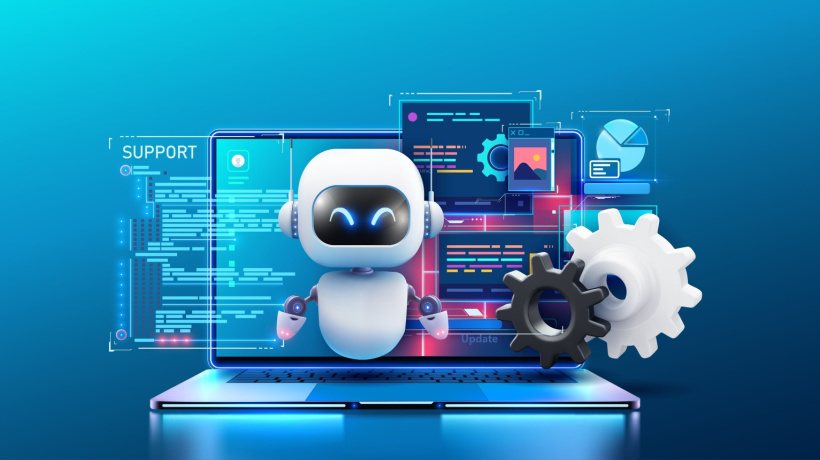Artificial Intelligence In Education
Artificial Intelligence (AI) has always been a big topic of discussion. The knowledge of AI, as we know, predominantly comes from sci-fi films and books. The movies and novels have often portrayed AI as the cause of genocide and destruction, but there is more to it than that! With a few brilliant scientists, like the late Stephen Hawking, arguing against the creation of AI, many others justify its invention to benefit humanity tremendously. The machine intelligence phenomenon has already begun its integration with every sector, including the education system. Educationalists anticipate the role of Artificial Intelligence, in the education sector, to increase dramatically in the next few years.
Not only does AI have the capacity to transform the existing automated management systems, which automate administrative operations at the institution level, but it also has the ability to transform the conventional teaching and learning methods technologically. It does this by seamlessly integrating with eLearning tech and online Learning Management Systems (LMS), to introduce educational technology, such as Virtual and Augmented Reality in classrooms, which provide real-time teaching and learning experiences to students as well as teachers.
Role Of AI In Administrative Management
Currently, the reliance of educational institutions on automated ERP management systems to conduct or oversee administrative operations, such as student registrations, course allocations, dorm/hostel management, staff recruitment, fee collection, and many more, is expected to decrease with AI-driven systems. This is mainly because the AI-governed applications require very less, to be precise, no human interference, at all, to perform desired tasks, whereas the automated systems, despite possessing automatic characteristics, still, require human assistance to perform operations.
For instance, imagine registering a student to a course based on his/her rank, score, educational background, and other aspects using an automated student information management system (SIS). Such a system requires an operator to enter all the necessary details into the system so, that it can conduct analysis and display the best result of available courses. Then, the operator is facilitated to assign the desired course, chosen by the student, from the prescribed options. While this process reduces the management’s burden of processing and analyzing applications, it still requires manual actions to perform operations. Now imagine, conducting the same procedure using an AI-driven system. Here, all the operations, right from automatically receiving the data from the online form to assigning candidates to the right course from their priority list, are performed without any human interference.
Nowadays, data security is one of the biggest concerns for educational organizations. Educational institutions, such as schools, colleges, universities, and training centers have a lot of sensitive information relating to students, admissions, enrollments, attendance, faculty, and more. Utilizing AI eliminates the risk of data loss and cyber hacks.
Role Of AI In Academic Management
The one section of individuals, who benefit extremely by adopting AI technology is the academic management personnel (teachers/faculty/teaching staff.) The AI’s ability to auto-grade papers, auto-evaluate assignments, assign homework, and many more, make it a perfect tool for educators to simplify their job enormously. The capacity of AI doesn’t just end there! It enhances personalized and individualized learning by seamlessly integrating with LMS to share study materials, navigate through lesson content, create and view educational videos, presentations, illustration artwork, images, audio lessons, etc. And, at the same time, it allows students to attend tests and exams online on smartphones, tablets, computers, and various other electronic devices.
Moreover, AI innovation encourages eLearning, in order to enhance personalized, blended, competency-based, and differentiated learning methods by making, utilizing and overseeing proper technological procedures and assets in teaching. Additionally, AI in education incorporates different frameworks and tools that emphasize structure, improvement, research and development, administration, and assessment of procedures to ease teaching and learning.
Conclusion
Contrary to the popular belief, utilizing AI in education isn’t such a bad idea after all. Just like any other element, AI, too, has pros and cons that come at a certain cost. It becomes difficult to move forward and evolve if we are concentrating more on the drawbacks, rather than benefiting from the advantages.










